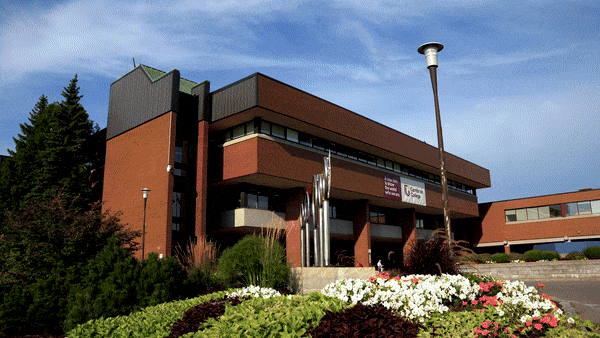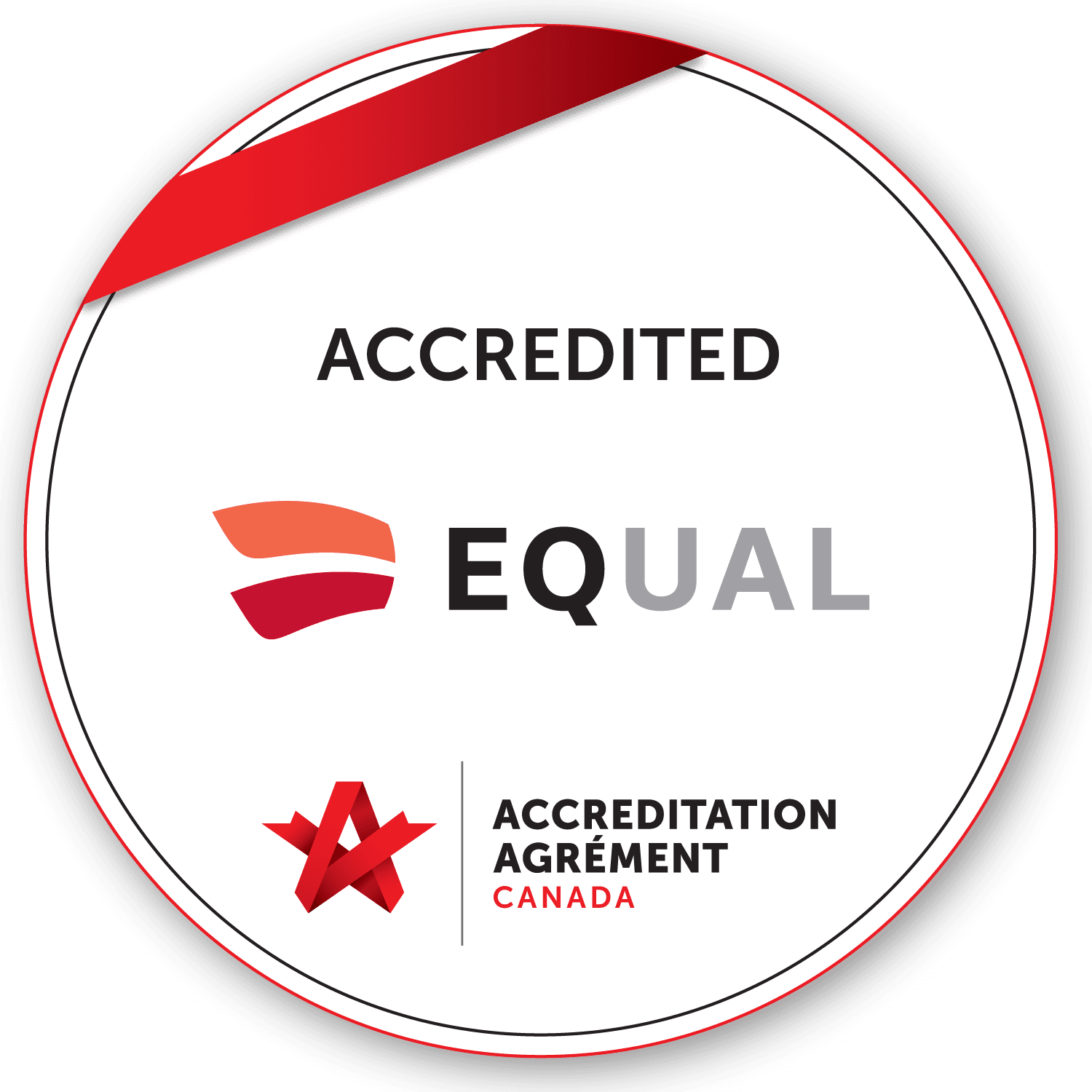

Key Details
Program Start Dates
September 2026
Please visit Ontario College Application Service to learn more about start dates.
Credential
Ontario College Advanced Diploma
Program Duration
6 Semesters / 3 YearsProgram Contacts
Program Coordinator / Professor
Program Overview

Prepare for a high-demand, rewarding, and critical health care career
Train to be a vital member of the health care team by becoming a Medical Laboratory Technologist. You will build your analytical, interpretation, and critical thinking skills to report patient results to provide clinicians with the vital information they need to provide the best courses of treatment for the patient. Through classroom learning, laboratory exercises, and clinical placements, you will learn to perform complex analyses necessary for diagnosis and treatment in a fast-paced laboratory environment. As part of the program, you’ll also gain phlebotomy skills so you can successfully collect blood specimens for laboratory testing or other health care needs.
Prepare for entry-level medical laboratory technology practice in each of these five disciplines:
- Clinical hematology – analysis of cellular and non-cellular components of blood and hemostasis
- Transfusion science – preparation of blood for transfusion and storage of blood and blood products
- Clinical chemistry – analysis of components in blood, urine, and other body fluids
- Clinical microbiology – prepare, culture, incubate, and stain clinical microbiology specimens to identify cause of infection
- Clinical histotechnology – fix, process, embed, cut, and stain histological specimens to demonstrate cellular and non-cellular elements
When certified, you will discover a wide range of career opportunities, from hospitals to private and public labs.
Program Highlights
Program highlights
- Limited enrolment
- Practical fieldwork in an accredited hospital or private lab in Canada
- Grads are eligible to write the national certification examination administered by the Canadian Society for Medical Laboratory Science (CSMLS) until February 2026 and the Canadian Association of Medical Laboratory Professionals (CAMLPR) (effective Spring 2026)
- Accredited by Accreditation Canada
- Free tuition and funding supplies for eligible Ontario residents through the Learn and Stay Grant
- Many clinical placement sites are with northern Ontario partners but could be at any affiliated lab (you will be responsible for all costs associated with your clinical placement including, moving expenses, travel, and accommodations)
Admissions
Admission requirements
For graduates of the new curriculum Ontario Secondary School Diploma (30 credits) curriculum or equivalent or mature student status, including:
- Any grade 12 English (C) or (U)
- Any grade 12 mathematics (C) or (U)
- Any grade 12 chemistry (C) or (U)
- Any grade 11 (U) or (C) or grade 12 biology (U)
Please note: A minimum of 65% is required in grade 12 mathematics.
For limited programs, the minimum prerequisite grades required for successful admission will be determined by the quality and quantity of the applicant pool. Additional post-secondary education will also be considered as part of students’ applications to limited enrolment programs.
Additional admission requirements
Students will be required to provide proof of certain immunizations and non-medical requirements to work with samples in medical laboratories both at the college and on placement.
FOR ENTRY INTO FIRST AND SECOND YEAR LABS:
Deadline for incoming fall students: September 30
Medical requirements:
- Tetanus/Diphtheria (Proof of primary series (3 doses) most recent dose must be within last 10 years)
- Pertussis (Adult dose after the age of 18)
- Polio (Proof of primary series containing a minimum of 3 doses)
- Measles, Mumps, Rubella (MMR) (Documented proof of two vaccinations or bloodwork showing immunity)
- Varicella (Documented proof of two vaccinations or bloodwork showing immunity)
- Influenza (Optional, but highly useful and recommended)
- COVID-19 Vaccination Receipts (Required primary series 2-3 doses)
- Hepatitis B Vaccinations (Proof of primary series of vaccinations is required)
- Hepatitis B Antibody Bloodwork (Mandatory – bloodwork must show proof of immunity)
Non-medical requirements:
- WHMIS
FOR ENTRY TO FINAL YEAR CLINICAL:
Deadline to complete varies depending on placement start date
Medical requirements:
- Influenza (Optional, but highly useful and recommended)
- Tuberculosis (Mantoux) – 2 Step TB Skin Test
Non-medical requirements:
- Mask Fit (N95-3M models, Valid for 2 years)
- Vulnerable Sector Criminal Record Search (Valid for 1 year)
- WHMIS (Valid for 3 years)
- Workplace Health and Safety 4 Step (Does not expire)
- AODA – Accessibility for Ontarians with Disabilities Act (Does not expire)
- Student Declaration of Understanding (Required – Valid for 1 year)
Clinical placement requirements
In the final year of the program, you will complete your clinical placement courses at an accredited clinical laboratory. Clinical placement semesters are continuous with no break during study week. There are two clinical placement courses, spread over the final two semesters in the Medical Laboratory Technology program. You have a short break between each of the semesters, as per the Academic Schedule.
Cambrian has affiliated clinical partnerships with several public and private laboratories across Canada that will provide excellent clinical training to Cambrian’s Medical Laboratory Technology students. Clinical partner sites are subject to change; therefore, specific geographic regions may not be available at the time of your placement and other regions may be added. Please note that when you accept a seat in the program, you also accept to go to any of the program’s affiliated clinical sites available at the time of your placement. Your placement location may be different from your preference, and you should expect that you may have to relocate for your clinical training. The placement will be delivered at an accredited hospital or private lab in Canada that is an approved clinical partner of Cambrian College.
Please note that all related clinical placement expenses such as travel, parking, and accommodation are your responsibility.

Academic Upgrading
Are you missing admission requirements? Strengthen your academic skills for free at your own pace through Academic Upgrading!
Program delivery
Program delivery
2026-2027
Fall term start
- Semester 1: Fall 2026
- Semester 2: Winter 2027
- Semester 3: Fall 2027
- Semester 4: Winter 2028
- Semester 5: Spring 2028
- Semester 6: Fall 2028
Program of Study
Program of study for 2026-27 Academic Year
| Semester 1 | Credits | |
|---|---|---|
| BIO 1320 | Anatomy and Terminology | 2 |
| ENG 1121 | Research & Writing/Health Sciences | 3 |
| MLT 1300 | Quality | 3 |
| MLT 1301 | Lab Equipment and Safety | 4 |
| MLT 1306 | Specimen Collection and Handling | 3 |
| MTH 1325 | Lab Mathematics | 2 |
| One General Education courses 1 | 3 | |
| Credits | 20 | |
| Semester 2 | ||
| MLT 1303 | Lab Techniques – Microbiology | 4 |
| MLT 1316 | Molecular Techniques | 2 |
| MLT 1317 | Lab Techniques – Hematology | 4 |
| MLT 1318 | Lab Techniques – Chemistry | 4 |
| MLT 1308 | Introduction to Transfusion | 3 |
| One General Education courses 1 | 3 | |
| Credits | 20 | |
| Semester 3 | ||
| BIO 1301 | Clinical Microbiology II | 2 |
| BIO 1302 | Clinical Microbiology II Laboratory | 3 |
| CHM 1320 | Clinical Chemistry II | 2 |
| CHM 1321 | Clinical Chemistry II Lab | 3 |
| MLT 1310 | Clinical Histotechnology II | 2 |
| MLT 1311 | Clinic Histotechnology II Lab | 3 |
| MLT 1312 | Transfusion Science II | 2 |
| MLT 1313 | Transfusion Science II Lab | 3 |
| MLT 1314 | Clinical Hematology II | 2 |
| MLT 1315 | Clinical Hematology II Laboratory | 3 |
| Credits | 25 | |
| Semester 4 | ||
| BIO 1303 | Clinical Microbiology III | 2 |
| BIO 1304 | Clinical Microbiology III Laboratory | 3 |
| CHM 1440 | Clinical Chemistry III | 2 |
| CHM 1441 | Clinical Chemistry III Lab | 3 |
| MLT 1400 | Clinical Histotechnology III | 2 |
| MLT 1401 | Clinical Histotechnology III Lab | 3 |
| MLT 1402 | Clinical Hematology III | 2 |
| MLT 1403 | Clinical Hematology III Laboratory | 3 |
| MLT 1404 | Transfusion Science III | 2 |
| MLT 1405 | Transfusion Science III Lab | 3 |
| Credits | 25 | |
| Semester 5 | ||
| MLT 1031 | Comprehensive Review I | 1 |
| MLT 1550 | MLT Clinical Skills Simulation | 12 |
| One General Education Course. 1 | 3 | |
| Credits | 16 | |
| Semester 6 | ||
| MLT 1032 | Comprehensive Review II | 1 |
| MLT 1600 | Clinical Placement II | 12 |
| Credits | 13 | |
| Total Credits | 119 | |
- 1
-
For more information regarding General Education courses, click here.
Important Notice
Fees presented are estimates based on projections for future academic year(s) of study. Actual fees charged may differ from what is published here. A full detailed listing of all fees is available in myCambrian and updated annually no later than May 1 for the following academic year. Students in Academic Upgrading are responsible for any fees listed on their invoice each term.
Tuition and ancillary fees
Please see our fees page for the breakdown of tuition and mandatory ancillary fees by program and semester for both domestic and international students.
Books and supplies
Books and supplies may be required at the course level over and above what is estimated above. Please consult your professor/instructor and course outlines for further information.

College may be more affordable than you think!
Have you said, “school can wait another year”? Don’t sacrifice your future any longer – you can do it!
Whether it’s fear, financial reasons, or something else that is impacting your decision to start school, we’re here to listen to you and help in any way we can!
Work-integrated learning (WIL)
Take your education beyond the classroom!
Cambrian programs blend academic learning, hands-on training, and community involvement opportunities to help you achieve your ultimate goal – your dream career. You’ll have the opportunity to apply your knowledge to real-world scenarios within and outside of the classroom through work-integrated learning. Whether it be a capstone project, co-op, practicum, preceptorship component, or placement, you’ll benefit from a practical, job-related experience before you graduate.
Learn more about previous opportunities in this program and more!
Hospital and private lab placements – under the supervision of a registered medical lab technologist (MLT), students got the opportunity to continue practicing and developing key theories and skills including their critical thinking, organizational, and professional skills in a high-paced clinical environment over two academic terms. These placements help prepare students to challenge the CSMLS certification exam to become licensed MLTs.
Before starting your program it’s important to understand the differences between the opportunities as well as the requirements.
Field of Study
School of Health Sciences and Emergency Services
Cambrian delivers a compelling assortment of gratifying careers that focus on health and emergency services. Our on-campus dental and massage clinics provide opportunities for real-world experiences with the community. Medical support programs equip you with in-demand specialized skills. And our paramedic, police, and firefighter programs sharpen your technical skills and shape your distinct personality to work boldly on the frontline.
Specific program pathways
College or university degree opportunities
If you are a graduate of this program, you may continue your studies at a college or university and you may receive credit(s) for your prior college education. Refer to Cambrian’s college and university agreement details for further information.
Career Outcomes



Need a career coach?
Explore how this program can lead to a great career! Cambrian’s Career Coach platform is a user-friendly, online tool that provides up-to-date and comprehensive labour market data to help you explore career options, salary expectations for the Greater Sudbury region, and more!

See where you'll be learning!
Minimum technology requirements
Success in this program requires that you come equipped with some program-specific technology requirements.
Minimum technology requirements
- Regular access to a computer with a reliable Internet connection
- Webcam and headset
- Personal computer
- Windows 8, 8.1, or 10 operating system
- Web browser: Firefox, Chrome, Internet Explorer 10 or higher
- Apple Mac
- OS X operating system
- Web browser: Firefox or Safari
You’ll be accessing industry-standard software as part of your program. Your program coordinator and IT will set you up with access on your computer or within our campus labs. If you have any questions about these technology requirements, please email info@cambriancollege.ca or call (705) 566-8101, ext. 7303.
System requirements for assistive technology
To access the widest range of assistive technology (AT), a Windows-based computer is recommended.
- Recommended OS: Windows 10 or newer
- Recommended CPU: Intel or AMD multicore processor
- Recommended RAM: 8 GB
- Recommended storage for assistive technology: 8 GB of available hard drive of solid state drive space (please note this is not the total drive size and refers specifically to available space needed for assistive technology)
- Recommended audio: Speakers or headphones for text-to-speech and microphone for speech input
While Apple computers can provide many AT options, some specialized software may not be available/compatible with this platform. Please consult with the Glenn Crombie Centre for further details.
Bring your own device (BYOD)
Cambrian College has implemented a BYOD principle to both enrich the student learning experience in and out of the classroom and to ensure flexibility!

Ready to take the first step?
Start gaining the highest level of skills at Cambrian now – and you’ll be ready to take advantage of the many career opportunities waiting for you just around the corner. The future is yours!
Have Questions? We are here to help.
If you have any questions about programs, funding, OSAP, deadlines, student services, or anything else, reach out to our support team and we are happy to help!
Related Programs


